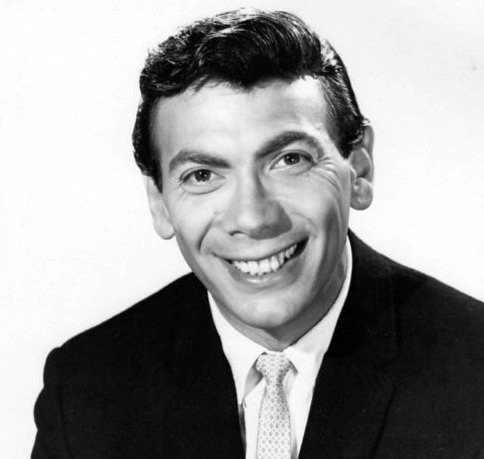Introduction
Ed Ames was born Edmund Dante Urick in Malden, MA on July 9th, 1927. He grew up in a non-professional musical family, and along with his brothers Joe, Vic & Gene formed the Ames Brothers in the late 1940’s. In a decade of popular singing quartets they were the most popular and lasted as a group until the early 60’s music era. Once the group disbanded Ed began a successful solo career with RCA Victor Records. During his career he had one Billboard top 10 hit, “My Cup Runneth Over,” another top 40 hit “Who Will Answer,” five other Billboard Hot 100 songs “Try to Remember,” “Time, Time,” “When the Snow Is on the Roses,” “Apologize” & “Son of a Travelin’ Man.” He also had big nine easy listening (Adult Contemporary) hits: “Timeless Love,” “All My Love’s Laughter”, “Kiss Her Now,” “Changing, Changing,” “Son of a Travelin’ Man,” “Think Summer” (with Marilyn Maye), “Leave Them a Flower,” “Thing Called Love,” “Three Good Reasons” and “Chippewa Town,” which have now become oldies music gems.
Ames also is an actor, starring in the Daniel Boone television series as the Cherokee brave, Mingo. Ed will always be remembered for his appearance on The Tonight Show with Johnny Carson when he performed a tomahawk throwing exhibition that went bad in a very funny way. Ed Ames continues to sing beautifully into his 80’s. Other Ed Ames Songs: “The Windmills of Your Mind,” “Sing the World Away,” “The Answer Is,” “Give Me Back My Life,” “Love Is Here to Stay,” “It Only Takes a Moment,” “Six Words,” “Monica,” “The Time Has Come,” “I Believe,” “Two for the Road,” “Gloves, Pictures, Dreams,” “I’ll Stay Lonely,” “Let Me So Love,” “More” and “The Wind Will Change Tomorrow.”
Early years
Singer and actor Ed Ames was born Edmund Dantes Urick on July 9, 1927 in Malden, Massachusetts. Ames became popular with the 1960’s hits “When the Snow Is on the Roses” and “My Cup Runneth Over.” He grew up in a poor Jewish family, together with his eight other siblings. While studying classical and opera music in Boston Latin School, he and his brothers formed a quartet. They used to join competitions around Boston area where they usually won. Later, his three brothers formed the Amory Brothers quartet and went to New York where they added Art Mooney as the bandleader. Nonetheless, the quartet changed their name to Ames Brothers by playwright Abe Burrows who helped them throughout their career. In 1948, they signed a record deal on Decca Records but unfortunately their records were never released because of the Musician Union’s ban. They continued to switch labels which by good luck, earned them several hits including “Rag Mopp,” “Sentimental Me,” “It Only Hurts for a Little While,” “You, You, You,” and “The Naughty Lady of Shady Lane.” After making hits, The Ames Brothers called it quits in 1960.
Ames’ acting and singing career
After The Ames Brothers’ dissolution, it was Ed Ames turn to pursue his career — acting career. His first acting career involved playing a role on the Off-Broadway production of Arthur Miller’s The Crucible. From there, he had appeared in Broadway’s The Fantasticks and Carnival!
With Ames’ dark skin color and prominent facial bone structure, it helped him to get roles as an American Indian. He had his big break when got the role as Chief Bromden in the Broadway production of One Flew over the Cuckoo’s Nest, opposite Kirk Douglas. It was later followed by another break when he played as “Mingo,” a Native American on the 1960’s NBC television show David Boone. Aside from acting, he also developed some skills in tomahawk (a Native American tool) as being required for his Native American role. He even had appearance on The Tonight Show with Johnny Carson, demonstrating the skill.
In 1957, Ames issued the single “Bean Song (Which Way to Boston?)” under the name “Eddie Ames.” In the 1960’s, he pursued his singing career as a solo artist and released “Try to Remember” in January 1965. In 1967, he released “My Cup Runneth Over” which was a bigger success, peaking at #8 on the US chart and #1 on the R&B. After those two big hits, Ames’ following singles “When the Snow Is on the Roses,” “Time Time,” “Pete Raids,” and “Timeless Love” failed to sell. However, his last single, “Who Will Answer” entered the pop Top 20 in 1968. In 1975, he attended UCLA and received his degree in theater and cinema arts. Being an outspoken American Jewish, Ames was appointed as the president of the Los Angeles chapter of the Zionist Organization of America.

